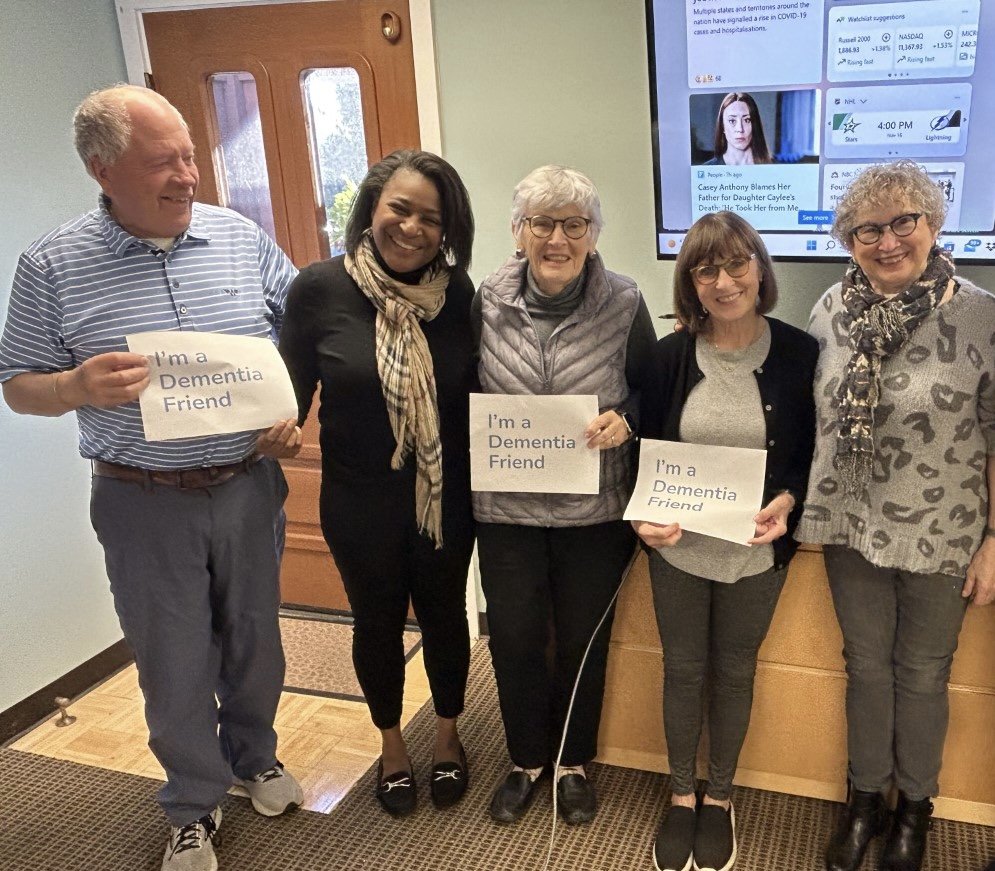Dementia Basics: Signs and Support
IVC VOLUNTEER EDUCATION SESSION
As part of our focus on Volunteer Education, IVC recently hosted Emily Caldwell Meeks, Program Manager for Dementia Friends Washington at UW Memory and Brain Wellness Center.
Emily shared the basics of dementia and invited IVC volunteers to consider how we can support community members living with the disease.
HERE ARE HIGHLIGHTS FROM THE SESSION
What to know about dementia:
Dementia is not a normal part of aging. Not everyone who grows old
will develop dementia.
Dementia is caused by diseases of the brain. The most common is
Alzheimer’s.
Dementia is not just about having memory problems. It can affect
thinking, communication and doing everyday tasks.
It is possible to have a good quality of life with dementia. Symptoms
may be mild for a long time. Everyone can feel joy, comfort and a sense
of belonging with support.
There’s more to the person than the dementia. People with dementia are
a valuable part of the community.
Early Signs:
Memory loss that disrupts daily life.
Challenges in planning or solving problems.
Difficulty completing familiar tasks at home, at work or at leisure.
Confusion with time or place.
Trouble understanding visual images and spatial relationships.
New problems with words in speaking or writing.
Misplacing things and losing the ability to retrace steps.
Decreased or poor judgment.
Withdrawal from work or social activities.
Changes in mood and personality.
Conversation Tips:
Come from the front, identify yourself, and keep good eye contact. If the person is seated or reclined, sit down so that you’re at eye level.
Use short, simple phrases and repeat them if needed. Ask one question at a time.
Speak slowly and clearly. Use a gentle and relaxed tone.
Patiently wait for a response. Give the person time to process what you said.
For a deeper understanding, visit the IVC resource library in our office to pick up a Dementia Road Map brochure along with a copy of the short session workbook Emily used with participants during the session.
We will post our next Volunteer Education session in our monthly volunteer newsletter. Our last session featured the Independent Living Program from Housing Resources Bainbridge. View the recorded session here.
Become an IVC Volunteer: If you would like to become an IVC volunteer, apply here.
Info for Care Receivers: If you are interested in services and programs for care receivers, contact our office @ 206-842-4441.

